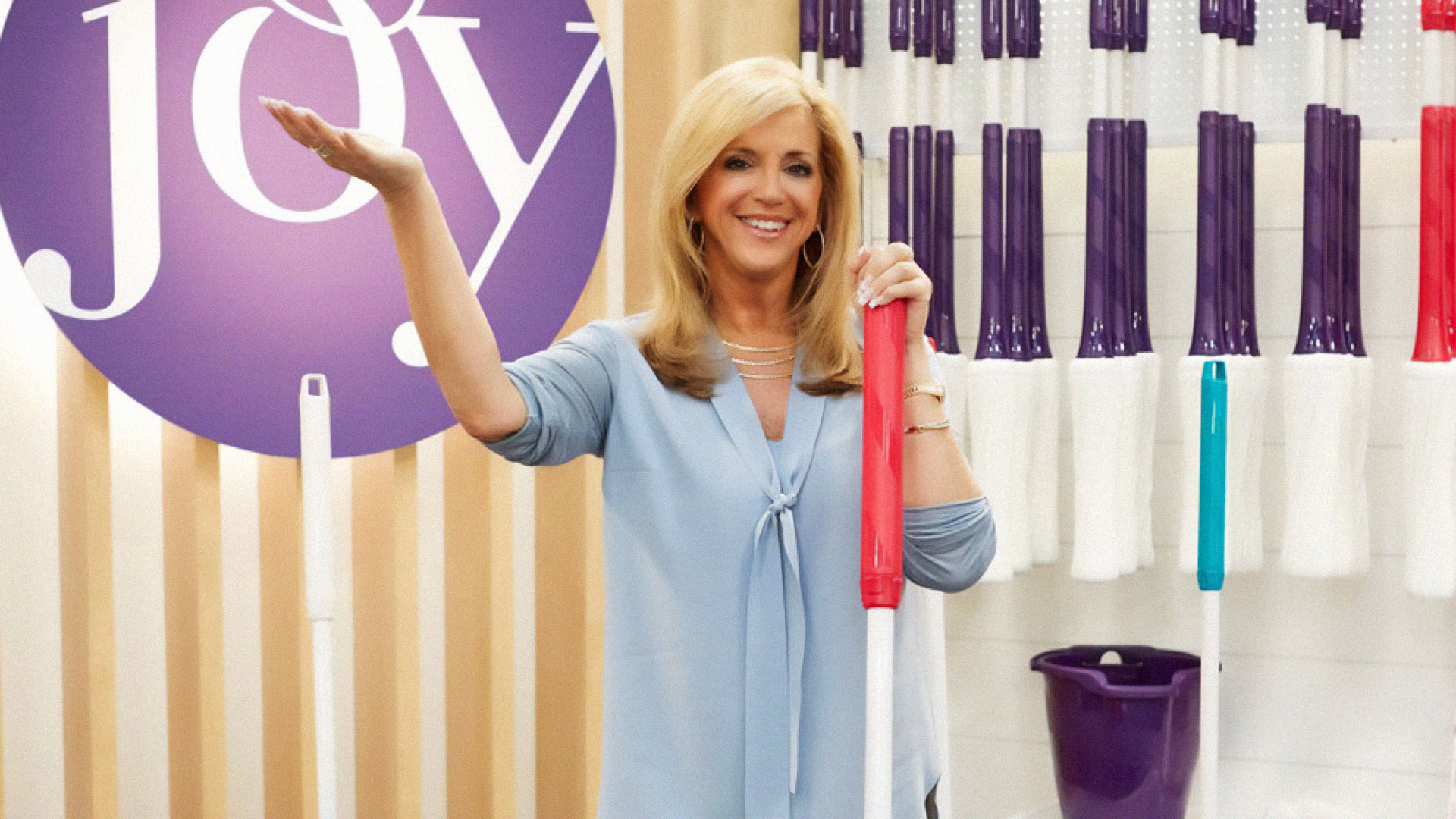Joy Mangano is the self-made woman founder of Clean Boss, a multimillion American company specialized in cleaning products. The roots of this company lie in straightforward marketing: communication based on empathy.
Her invention did not start in a garage, like some of the great beginnings in tech (e.g., Apple and Google), but in a parking lot, using a wooden platform as an improvised floor to show women leaving the facing supermarket why her invention was a great idea.
Born in 1956, Joy is a MacGyver ante litteram / ahead of her time: in Huntington, Long Island, New York, she began building tools in her home, starting with a homemade approach, then gradually refining her inventions when by the 90s, as a single mother juggling occasional jobs and raising her kids, she decided to create a tool to make cleaning faster and more efficient. Miracle Mop was born. This invention cost her all her savings and involved several failures. She started promoting the product at her father’s store, then door to door, at trade fairs, and eventually through TV shopping networks but, like most success stories, she failed again, again and again.
But then, how did Joy build a billion-dollar company?
What Joy did was listen to her customers’ real needs, putting herself in their shoes. She marketed her product as a problem solver. It can clean quickly, leave no residue and avoid the need to wring it out by hand, because it was self-wringing and machine washable. In short, everything a ‘90ies housewife could desire.
What struck a chord was women’ needs for more time for themselves, greater efficiency and mostly understanding solutions that addressed their problems rather than creating unnecessary desires: her mop was not nicer, more elegant than others. It was simply more practical. Her marketing strategy here was not based on creating a desire, but solving a problem.
Empathy and strategy lead inevitably to results. Joy positioned her product in the heart of her customers, who don’t perceive the mop as a mere sale, but as something made for them, tailored to their needs. As Daniel Goleman, American psychologist, writer, and the father of Emotional Intelligence theory stated:
“Empathy allows us to rule emotions and guide them in the most beneficial directions.”
Brands that effectively use empathetic communication can influence customers’ purchasing decisions by understanding them, listening to their needs, and identifying how they want to feel while using the product or service they have bought.

